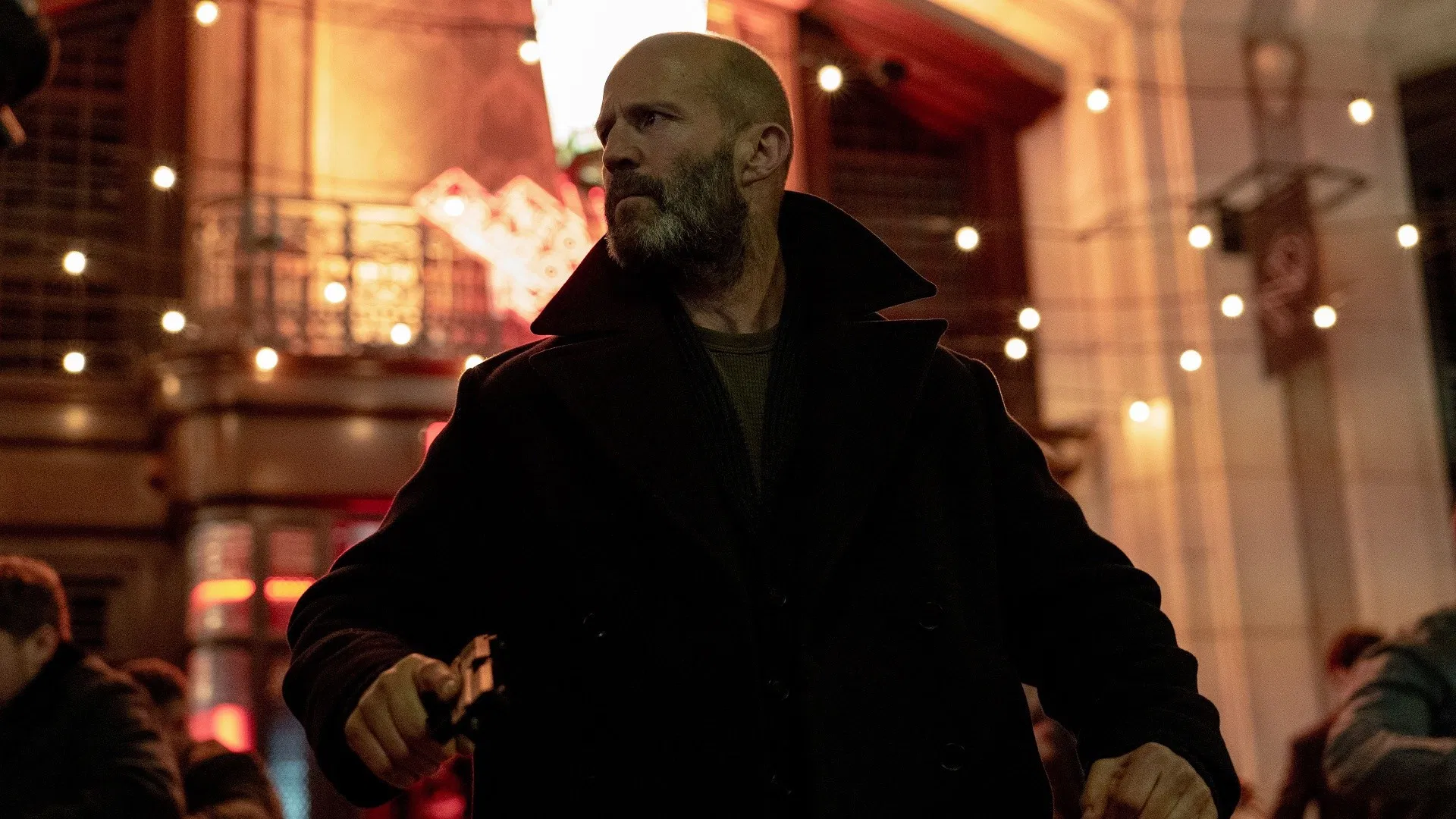'Human Resource’ REVIEW: Damage Control for Capitalism
'Human Resource’ REVIEW: Damage Control for Capitalism
PICTURE 1: Prapamonton Eiamchan as Fren in Human Resource / Photo courtesy of Happy Ending Film
TRIGGER WARNING: Mentions of suicide, abuse, and abortion / POTENTIAL SPOILERS AHEAD for Human Resource
To be a little bit personal, when I was going to watch Human Resource, I had my phone in my hand almost the whole time. I was waiting for ghost vibrations from work for notifications that might need me there. I was just thinking I'd be seeing another contemplative but emotionally heartbreaking Nawapol Thamrongrattanarit film to keep my mind off work mode. By the end of watching Human Resource, however, it was a more existentially crushing and intentionally cold experience to witness. Two hours of confronting the utterly empty shells of ourselves that we have all been shaped into.
I felt the reflection of how normal it felt to me, thinking about needing to work while seeing a film about how capitalism has utterly broken our humanity. It only worsens when it’s a woman trying to live and survive, as Human Resource lays bare the amount of self-destruction we have normalized for the sake of money. Where even the miracle of birth is just nothing more than a financial investment rather than a human being.
In fact, with the whole movie being centered on Fren (Prapamonton Eiamchan), an HR worker who’s pregnant, it essentially presents an entire society doing damage control for late-stage capitalism itself. Human Resource illuminates a world where everyone pretends that the globalized world right now is fine, while people are quietly miserable. When you have someone like Fren, whose purpose centers on corporate interests over workers' well-being, the film begs the question: Is it worth bringing a child into a society like this?
The film opens with a long, lingering close-up shot of Fren’s ultrasound with a fetus; it’s been only one month of her pregnancy, but something already feels off with how clinical both the news was delivered by her doctor and how she listens to it. In fact, throughout the entire film, we rarely, if ever, see Fren truly express any outward emotions of either happiness or sadness. Only incredibly subtle glimpses of reading through her face does Eiamchan brilliantly illuminate these tiny glances in her eyes that scream her true feelings about anything. But her mouth chooses silence over all of it. This seeming indifference gets more emphasized with a consistent visual motif of all the characters (Fren especially) being shot in a single profile shot. The prominence of this same shot communicates a form of both alienation and an obfuscation of a full face. Almost as if to say there’s always a realness and vulnerability being held back from being unmasked.
PICTURE 2: Prapamonton Eiamchan as Fren in Human Resource / Photo courtesy of Happy Ending Film
That silence is a recurring theme throughout the several months of her developing pregnancy, exacerbated by the utterly cold and modernized world she occupies. Diegetic sounds of distressing news are heard rather than any music; every building is either made of cement or steel. Every room is technically well-decorated by modern standards, but frankly boring and merely functional; communal spaces technically exist, but pretty much every conversation is transactional in nature, with no real intimacy expressed. Top that with the occupation and personality of Fren being a people-pleaser, an essential skill for HR work, Nawapol is purposeful in presenting a seemingly successful urban Thai metropolis as dull and draining.
It only worsens when we learn that Fren and her co-worker Tenn (“Atom” Chanakan Rattanaudom) have to hurriedly scramble to find a young replacement employee for their abusive boss, Jak. All because of a former co-worker, June, quits her position due to reaching her limits from Jak’s off-screen abuse. It’s in the implications of the unknown extent of Jak’s abusive behavior lingering in the film that feels more horrifying than any on-screen action can do. We can already fill in our own gaps of emotional turmoil that June or any of us have dealt with, under a system that expects us to smile and put on a face in fear for our survival.
There’s even an insidiously cruel way that Fren and Tenn perform their complicity in finding new prospects: they stay firm on low pay and bare-minimum benefits, cling to the hopes that the recession will fish in desperate rookies, and even directly ask applicants if they are completely willing to endure an abusive boss who throws papers and insults at them. The sheer banality of evil that the two have to do to both keep their heads and lot in life, while essentially scouting for a young, impressionable prospect to be sent to the wringer, felt too sickeningly real. They eventually find one perfectly willing candidate in Jida ("Pimma" Pimmada Chaisaksoen), who explains that she is capable of withstanding Jak’s abuse because she deals with abuse from her own family as well. It remains a quietly disturbing scene that doubles as a mirror to Fren’s willingness to tolerate bringing in young people (in turn, her future child) to a cruel, abusive society.
PICTURE 3: Prapamonton Eiamchan as Fren and “Atom” Chanakan Rattanaudom as Tenn Human Resource / Photo courtesy of Happy Ending Film
That complicity is further highlighted when it is revealed later that June actually died months after she quit due to an implied suicide. June visits her funeral but keeps her expressions neutral even when there’s clear guilt that she feels over her responsibility for June’s death. But life under capitalism continues, and that gets shown when we linger on a shot of June’s cremated ashes; a J-cut then slowly climbs in on audio from a meaningless motivational speaker. Essentially, death is nothing more than a bump in the road to corporate interest, just another cog in the machine that needs to be replaced. Fren helped replace the parts.
Even outside of a work setting, it's no better for Fren. We first see that when she picks up her husband, Thame (Paopetch Charoensook), from his office. He’s a corporate sales representative who primarily frames every conversation and interaction as either a transactional deal or showing a self-aggrandizing pride. He continually imposes all of his opinions and entitlement to always wanting his way on everyone, even his own wife. From pettier things like complaining about bikers disobeying one-way streets to much more substantial issues like him bemoaning about women choosing to have legal abortions, Thame mundanely bulldozes every conversation with his own ego. With any potentially real independent thought Fren might have, her husband already gives her an answer even before any argument can be thrown.
In Fren’s thoughts, she doesn’t want to disappoint her partner, no matter how dissatisfied she actually feels. She’ll cook the most boringly bland breakfast of eggs and apples for him, barely listening to him as he yaps on about work; even sex between them is a quick, passionless ritual. The only reason they even do that was just done as the bare minimum to conceive a child, a seemingly lifelong wish between the couple. I only say “seemingly” because Fren actually initially kept her pregnancy from Thame a secret by hiding her ultrasound in their closet. With no words spoken, this is the closest we truly get to how she actually feels about having a child: she's now a well-off, financially independent woman who lives in the city with her love and doesn’t want that to change.
The film’s editing also reflects that overall empty feeling as well, with a pacing so deliberately slow that it almost blurs into being sluggishly boring. But that deliberate lulling of time is what eventually builds itself up to Thame eventually discovering his wife’s pregnancy. They get in a car accident because Fren fell asleep on the wheel from all the compounding stress, and thus heads to a hospital. When watching so many other films with pregnancies as a narrative, we usually get the moment of the couple being happily scared but excited for such a milestone. In Thame’s case, we do get that moment of him joyfully in tears for a brief moment. But that slight episode of genuineness gets back on track to being the controlling, obtrusive husband he always is and immediately pins in several plans of housing, private schools, and an entire future for their kid.
PICTURE 4: Prapamonton Eiamchan as Fren in Human Resource / Photo courtesy of Happy Ending Film
Once again, Fren is completely silent and passively accepting of whatever role she’s given. Thus, she goes from somewhat independent to completely passive as her husband starts to cook and clean in service of her. While that may seem kind on the surface, there’s this condescending imposition felt when Thame makes all these decisions on his own without as much of an open discussion about his pregnant wife’s thoughts on the matter.
To give an even messier contrast of her constant inactions and lack of agency, there’s an occasional background noise in the news of this convicted murderer named Ann, who stabs her partner to death while carrying their baby. When sent to prison, she opts to abort her child because, in her own words, “I don’t want my child to grow up in prison.” It’s a messed-up illustration that Nawapol projects where it’s much preferable for a child to never be born in this world, over making a kid live to see their life end in miserable capitalist hell. To make things more heartless, Thame essentially uses Ann’s story as part of his pitch to sell body armor. No one’s tragedy is immune to a cynical sales pitch.
By the end of the film, Fren is around six months pregnant, and while some details have changed, life still seems to go on as usual. Thame goes back to his ways of being pettily pissed over one-way streets, albeit in the driver’s seat instead of Fren. Tenn is planning to quit over guilt with June’s death, while Fren feels she has no choice but to stay. As a further twisting of the knife of consequences, we see Fren head into the elevator where both Jak and Jida are inside. Jida is teary-eyed and broken, and the cycle continues; we never know her fate, but with how much the movie is showing a repetitiveness in its narratives and shots, it feels depressingly clear where Jida will go. There’s even a near-matching shot of Fren and Thame eating the same bland breakfast from before. With an upcoming baby in their lives, nothing has truly been different in how much Fren sleepwalks through life.
The only slight disruption in this repetition is when Thame suddenly tells Fren in their car that he loves her. This is the only time those words have ever been said, and that immediately shocks her. Has late-stage capitalism been breaking our brains for so long that even a possible expression of love is a rarity to hear or feel? We never get any definitive feelings, as we just move on and never get to hear what that moment meant to Fren.
PICTURE 5: Prapamonton Eiamchan as Fren in Human Resource / Photo courtesy of Happy Ending Film
All the movie ends on is this mutely crushing scene of Fren doing a routine car wash. As the car slowly crawls inside the wash, we get radio reports of schools implementing “Run, Hide, Fight” exercises to schools due to incidents of school shootings rising. In what is essentially the only time we hear any music is when Fren turns off the distressing news to instead play Fur Elise by Beethoven. And that song is a perfect encapsulation of what Fren’s actions amounted to: In the face of unspeakable tragedies of an increasingly unstable system enabled by capitalism, she chooses to drown out the pain with music as a signifier to her final choice to give birth. But even that decision of using the most famous and frankly basic of classical songs meant that she’s only giving the bare minimum of effort to keep her potential child happy.
Like what we cynically imagine HR people would do when there’s any real trouble, they don't actually want to help people but instead “keep the peace.” But how can peace be kept when happiness is utterly absent from it? While it may be understandable to be distressed over Fren’s inaction, there’s also empathy found in how understandably tragic it is to continually follow the miserable path, no matter what. As they see through the car’s window, the soapy liquid flies through the window and continually cleans up all that grime and mess; the car appears clean, while nothing about the actual car changed in any real way; it only got ready to be dirtied up again. It’s a perfect encapsulation of the machine of capitalist cycles.
So, when it comes to answering the question of whether it’s worth bringing a child into a society like this? It’s an easy no, but the core problem lies in whether or not for women like Fren if even choosing to do so is truly possible.
‘Human Resource’ is part of QCinema 2025’s lineup under the QCinema Selects program.

















